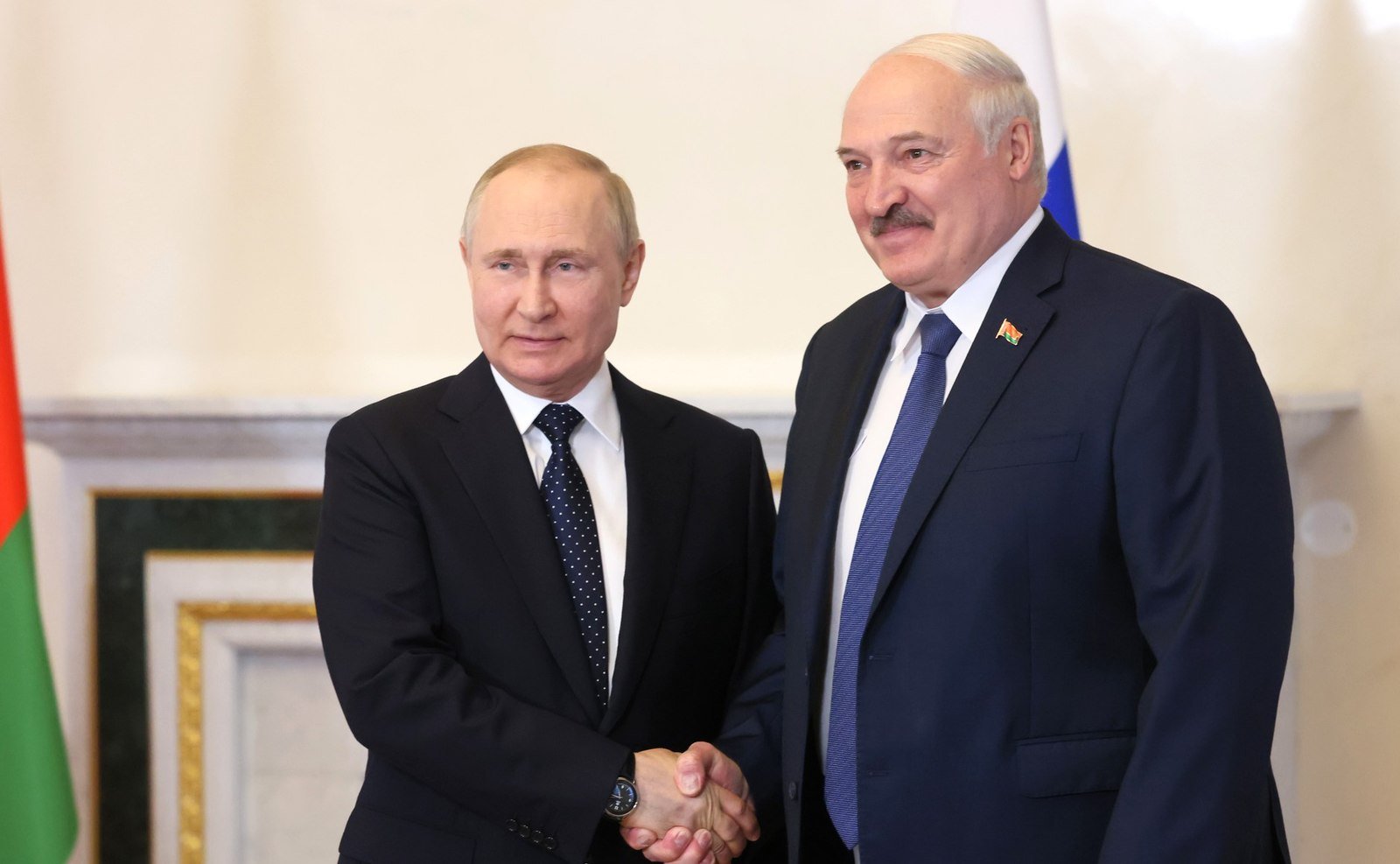Foreign Policy Blunder? Putin Announces Deployment Of Nuclear Weapons In Belarus
President of Russia Vladimir Putin meeting with President of Belarus Alexander Lukashenko in 2022. The two leaders have maintained close ties throughout the course of the war in Ukraine (Wikimedia Commons).
On March 25, during an interview with the television network Russia 24, Russian President Vladimir Putin declared that Russia plans to store nuclear weapons in the neighboring country of Belarus. The declaration followed Western nations’ moves to supply Ukraine with weapons, including depleted uranium shells.
As of March 25, Russia had already deployed ten aircraft capable of carrying nuclear weapons to Belarus, Putin announced. He added that the construction of a storage facility for tactical nuclear weapons in Belarus would be completed by July 1.
Numerous international actors have denounced the move, fearing that Russia’s decision to locate tactical nuclear weapons in Belarus could risk igniting a global nuclear war.
The International Campaign to Abolish Nuclear Weapons (ICAN), awarded the Nobel Peace Prize in 2017, stated that “the likelihood of miscalculation or misinterpretation is extremely high. Sharing nuclear weapons… risks catastrophic humanitarian consequences.”
This revelation comes in the aftermath of Moscow’s suspension of Russia’s participation in the New START treaty in February, the only remaining arms control treaty between the United States and Russia.
In response to the backlash, Putin said, “The United States has been doing this for decades. They have long placed their tactical nuclear weapons on the territory of their allies.”
As of 2021, the United States stores 100 of its nuclear weapons in military bases across five countries: Belgium, Germany, Italy, Netherlands, and Turkey, all of which are part of NATO.
NATO spokesperson Oana Lungescu described any comparison between Russia’s decision to share nuclear weapons with its neighbors and the U.S.’s ongoing policy as “totally misleading.”
In his interview, Putin said that this development only resulted from a British announcement that it would arm Ukraine with uranium-depleted shells, adding that “Russia, of course, has what it needs to answer.”
Ammunition coated in depleted uranium is extremely useful at piercing armor, such as tanks. However, it is toxic for soldiers using uranium-depleted weapons and poses an environmental hazard for civilians in the area.
However, many believe Russia’s apparent justification for storing nuclear weapons in Belarus is deceitful.
Maxim Starchak, a researcher at the Center for International and Defense Policy at Queen’s University and expert in Russian nuclear policy, believes that “it’s just the latest attempt to draw U.S. attention, to increase tension,” adding that Russia seeks to “force them to the negotiating table,” and “accept Russia’s conquests in Ukraine as non-negotiable.”
Meanwhile, the U.S. response has not been as intense as expected. U.S. authorities stated there is no need “to adjust our strategic nuclear posture nor any indications Russia is preparing to use a nuclear weapon.”
“The U.S. reaction indicates that they’re not going to play Putin’s games,” according to Starchak. “That means the nuclear factor of this conflict has not formed at this point. It’s not Cuban Missile Crisis 2.0.”
Belarus is one of Russia’s closest allies, considered by many to be a satellite state. Alexander Lukashenko has been Prime Minister since 1994 and has referred to himself as “the last dictator in Europe.”
This latest move by the Kremlin reveals a fundamental inconsistency in Russian foreign policy.
On March 20, Chinese President Xi Jinping visited Russia and spoke with Vladimir Putin. In their meeting, Xi Jinping made it “very, very clear” that deploying nuclear weapons is unacceptable.
This statement is consistent with China’s 12-point peace plan for the Ukraine War, which declares that “the threat or use of nuclear weapons should be opposed.”
China is one of the few powerful nations maintaining an amicable relationship with Russia. Despite this, China has attempted to display itself as a mediator for peace, as demonstrated by its success in normalizing Iran-Saudi relations on March 10. Xi Jinping may be attempting a similar feat in the Russo-Ukraine conflict, which could further cement him as an advocate for peace and stability. Such a strategy would offer an alternative to the U.S.-led hegemony.
Therefore, Russia’s decision to deploy nuclear weapons in Belarus may undermine China’s credibility as a voice for peace, possibly threatening relations between the two powers. Additionally, it deprives Russia of its moral authority as a defender of non-proliferation.
Given the U.S.’s lax response to the issue, it is unclear what Russia seeks to gain from increasing nuclear tensions.

